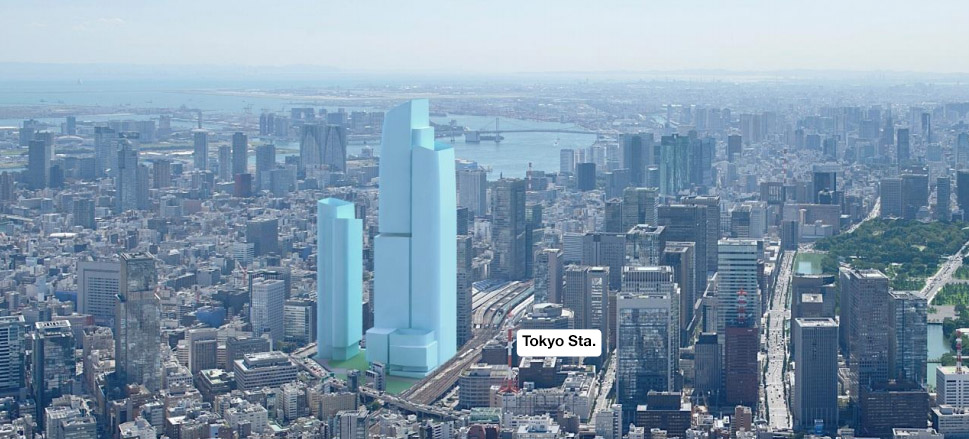Akashi’s tallest and most expensive condominium tower to go on sale this month
September 4, 2015Hyogo Prefecture,Akashi CityNew Construction,Real Estate News,All

Akashi City’s tallest and most expensive condominium is going on sale later this month and is already drawing a lot of interest from potential buyers. Three of the apartments will be priced over 100 million Yen and the most expensive apartment will be a 110 sqm (1,184 sq ft) 4-Bedroom unit priced at 130.9 million Yen (1.09 million USD). It is unusual to see apartments priced over 100 million Yen in the suburban areas of Kansai, and this is the first time that Akashi City has seen apartments priced at this level.
Proud Tower Akashi will be a 34-storey condominium located just a 2 minute walk from Akashi Station and 350 meters from the Akashi Castle park. The 199 apartments range in size from 54 ~ 110 sqm (581 ~ 1,184 sq ft) and are priced from 22.5 ~ 130.9 million Yen.Read more
Banks to reduce interest rates in September
September 3, 2015All,Home Loans / Mortgages
Five of Japan’s mega-banks will reduce interest rates on home loans this month due to increased competition and a relatively low long-term government bond yield.
The Bank of Tokyo-Mitsubishi UFJ (MUFJ) and Sumitomo Mitsui Banking Corporation (SMBC) will reduce their prime rate for a 10-year fixed-rate mortgage by 0.1 points to 1.20%. Mizuho Bank will reduce their 10-year fixed-rate by 0.05 points to 1.20%.Read more
Tokyo apartment sales in August 2015
September 2, 2015Real Estate News,Market Information,All,Tokyo

The following is a selection of apartments that were sold in central Tokyo during the month of August 2015:Read more
Tokyo office rents to peak in 2017?
September 1, 2015Tokyo Office MarketOffice/Retail News & Information,Real Estate News,Rental Market,Market Information,All,Tokyo
A vacancy rate of 5% is said to be the line between a landlord’s market and a tenant’s market. According to Miki Shoji, the vacancy rate in Tokyo’s central five business districts in July 2015 was 4.89%, down 0.23 points from June and down 1.31 points from last year. Shibuya-ku has the lowest vacancy rate of 2.27%, down 1.82 points from last year. CBRE reported that the all-grade vacancy rate in July 2015 was 3.3% in the 5 wards and 3.6% across the 23 wards. During the mini-bubble in 2007, the vacancy rate across all wards dropped to just 1.2%, while monthly rents reached a peak of 52,350 Yen/Tsubo (15,863 Yen/sqm).
Marunouchi remains the prime office location, and Marunouchi’s landlord - Mitsubishi Estate - is currently enjoying a vacancy rate of just 1.8%.
With renewed confidence in the economy, vacancy rates have again improved, while office rents have increased to a current average of 33,600 Yen/Tsubo (10,181 Yen/sqm), up from 29,050 Yen/Tsubo (8,803 Yen/sqm) seen during the market bottom.
Demand from companies seeking to rent entire floors is thought to be a driving force behind the rising rents. Companies are starting to group divisions and departments into one building or one floor, rather than having various smaller office locations.Read more
400m tall office tower for Tokyo Station area
August 31, 2015Otemachi,Tokiwabashi District RedevelopmentNew Construction,Office/Retail News & Information,Real Estate News,All,Tokyo

Mitsubishi Estate is planning a 400 meter tall office building for an area just north of Tokyo Station. This is the largest development planned for the Otemachi/Marunouchi area, and when complete it will be the tallest building in Japan, exceeding the 300m tall Abeno Harukas in Osaka.
Mitsubishi is aiming to make the building an international centre for finance, and hope to attract both domestic and foreign financial institutions.Read more
Akasaka - Japan's most sought-after residential address for CEOs.
August 28, 2015AkasakaLiving in Tokyo,All,Tokyo

Until recently, the most popular residential neighbourhoods for company presidents were Denenchofu and Seijo, but the latest trends show a preference towards central Tokyo.
Tokyo Shoko Research conducted a survey of 2.67 million companies nationwide and has ranked the most popular residential addresses of company presidents. In top spot was Akasaka in Minato-ku. It was followed by Yoyogi and Nishi Shinjuku. Denenchofu, which had once dominated the chart, had fallen to 18th spot, while Seijo dropped to 13th position.
In 2003, Roppongi was ranked 88th, while Nishi-Shinjuku did not even make the top 100. In 2014, Roppongi was ranked 5th.Read more
Cities across Japan tackling abandoned home issue

Japan has over 8,000,000 empty homes and apartments, representing 13.5% of the housing stock. Almost 70% of those are in buildings over 35 years old, and 44.5% are in buildings over 45 years old. The homes are in varying states of decay and not always in a condition where they could be occupied, and are often in locations where there is little to no housing demand.
A survey by the Nikkei Research Institute of Industry and Regional Economy found that over 60% of Japan’s major cities are making efforts to deal with the growing number of abandoned and dilapidated homes.
In Nagasaki City, owners of old homes they no longer want can donate them to the city. The city will then bear the cost of demolishing the structure and will convert the land for public use.Read more
